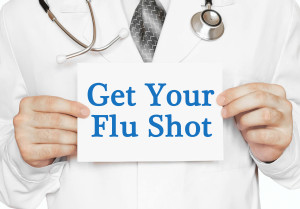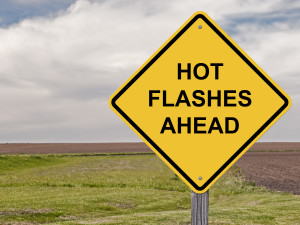It’s Not Too Late to Get Your Flu Shot!
 This year’s flu season is on track to be the worst in nearly ten years—and it’s nowhere near over yet. According to a recent report by the Washington Post, Tens of thousands of Americans have been hospitalized so far, and 37 children have lost their lives battling this season’s flu epidemic. If you have been hesitant to get vaccinated, it’s time to reassess the reasons why the Centers for Disease Control and Prevention (CDC) and your doctor recommend the flu vaccine, and how it can minimize your chances of being another victim of this year’s dangerous flu strain.
This year’s flu season is on track to be the worst in nearly ten years—and it’s nowhere near over yet. According to a recent report by the Washington Post, Tens of thousands of Americans have been hospitalized so far, and 37 children have lost their lives battling this season’s flu epidemic. If you have been hesitant to get vaccinated, it’s time to reassess the reasons why the Centers for Disease Control and Prevention (CDC) and your doctor recommend the flu vaccine, and how it can minimize your chances of being another victim of this year’s dangerous flu strain.
What are the Symptoms of the Flu?
Flu symptoms tend to come on quickly and unexpectedly. If you experience any of the following symptoms, you may have contracted the flu. See your doctor as soon as possible for a diagnosis and treatment:
- Fatigue and weakness
- Severe muscle and joint pain
- Fever, flushed skin
- Headache
- Dry cough
- Red, watery eyes
- Sore throat
- Runny nose
- Vomiting or diarrhea, often more common in children than adults
If you have any of the following symptoms, seek medical care immediately, as they could be an indication of a severe flu virus:
- Difficulty breathing
- Pain in your chest or abdomen
- Sudden dizziness
- Difficulty focusing
- Severe vomiting
What are the Benefits of the Flu Vaccine?
The CDC advises that the single best way to protect yourself from both falling ill from the flu and serving as a carrier is to get the flu vaccine each year. Approximately two weeks after the vaccine is administered, antibodies are developed in the body that protect against infection using the viruses in the vaccine. It is important to obtain a flu vaccine annually, because each year, the distributed vaccine is designed to guard against those virus strains that researchers believe will be most prevalent during the coming flu season. The more Americans who obtain a vaccination, the less the virus can spread across communities.
Isn’t It Too Late to Get Vaccinated Now?
You do not need to obtain a flu vaccine at the start of the flu season to be protected. While the flu season is typically considered to begin in October and last through May, obtaining a vaccine at any time during the flu season can still protect you and minimize your chances of becoming ill or spreading the illness to others.
I’m Pregnant. Can I Get the Flu Vaccine?
Pregnant women should be vaccinated against the flu, as it is their best form of protection against the virus. The flu can cause even more complications and severe symptoms in pregnant women. When pregnant, changes to your immune system, heart, and lungs make women more susceptible to viruses and infections such as the flu, which can result in hospitalization, and—in the most severe cases—death. The flu vaccine protects pregnant women during and after their pregnancy, and it also protects the baby from contracting the virus for several months after birth.
What Else Can I do to Prevent the Flu?
In addition to obtaining a flu vaccine, follow these tips to minimize your chances of contracting the flu:
- Avoid exposures to anyone who is sick.
- Wash your hands regularly with soap and water.
- Do not touch your eyes, nose, or mouth, as you could transfer germs you picked up on your hands into your body.
- Keep surfaces in your home and office clean and disinfected.
- If you have children who go to school, keep items that travel from the classroom to the house sanitized as well, such as toys, lunch bins, and other objects.
- Take care of yourself by getting plenty of rest, drinking plenty of water, eating a balanced diet of fresh, healthy foods, staying physically active, and managing stress.
If you do contract the flu virus, be diligent not to spread the vaccine to others. Stay home, do not go to work, cover your nose and mouth when you sneeze or cough, and avoid contact with others.
If you feel you may have contracted this year’s flu strain, contact your doctor for an appointment.
More
